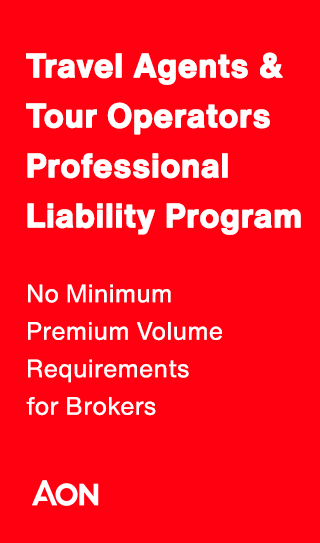News
Technology can help insureds mitigate water damage
One of the latest InsurTech developments is a water-leak detector system that can sense leaks and can close the valve attached to the main water line of a property that is causing the leak. This development presents an opportunity for agents to educate their clients about the value of these systems and it feeds the evolution of the insurance industry.
N.H.: Sununu seeks gubernatorial reelection instead of U.S. Senate seat
Gov. Chris Sununu announced Tuesday that he will seek a fourth term as the governor of New Hampshire during the 2022 election, instead of seeking a seat in the U.S. Senate. In a statement, Sununu said that he would rather maintain his executive position in New Hampshire, in order to help the state continue to grow.
N.J.: Legislation authorizes drivers to display electronic proof of registration
Gov. Phil Murphy announced Monday that he signed S-324 into law, which authorizes operators of motor vehicles to display electronic proof of registration and requires the New Jersey Motor Vehicle Commission to send an application for registration renewal to lessees of leased vehicles. According to the legislation, authorization of this electronic proof includes the use of smart phones and tablets to display and produce proof of registration.
N.Y.: The legalization of cannabis creates a conundrum for New York employers
Recently, the New York state Legislature legalized recreational, adult-use cannabis. As part of this legalization, the New York State Department of Labor revised Labor Law 201-D—which prohibits discrimination by employers—to include protections for employees who choose to use cannabis outside the workplace. These revisions create a conundrum for employers because they require changes to be made to workplace policies involving cannabis, and limit how employers can address cannabis in the workplace. For more help understanding these revisions, read the DOL’s frequently-asked-questions guide.
N.Y.: Hochul signs legislation to prohibit carriers from considering dog breeds
Recently, Gov. Kathy Hochul signed S.4254/A.4075, as part of an animal welfare legislative package. The bills—sponsored by Sen. Michael Gianaris, D-12, and Assemblywoman Deborah J. Glick, D-66, respectively—prohibit carriers from using the breed of a dog when underwriting an insured’s homeowners insurance policy, as defined by New York Insurance Law Section 2351. Specifically, it prohibits insurers from refusing to issue, renew or cancel a homeowners policy, or charge or impose an increased premium on an HO policy based on the breed of a dog that the insured owns or harbors. PIANY—along with other industry associations—opposed this legislation when it was in the state Legislature, and again when it was sent to Hochul. According to PIANY, the law undercuts carriers’ underwriting flexibility and freedom, which is a basic principle of insurance that is needed to rate exposure to risks that aggressive dogs pose, properly.
N.Y.: DFS proposes regulation to support minority- and women-owned businesses
Acting Superintendent of Financial Services Adrienne A. Harris announced last week that the New York State Department of Financial Services proposed a new regulation that will allow the DFS to evaluate how well New York-regulated banking institutions are serving their communities with respect to minority- and women-owned businesses. Recently, the DFS enacted the Community Reinvestment Act, which requires it to ensure that New York businesses are supported. As part of that obligation, the proposed regulation would enable the DFS to evaluate the extent to which banks offer and provide credit to minority- and women-owned businesses in their communities, and will help the DFS ensure that these businesses have fair access to credit. This proposed regulation is subject to a 60-day comment period, after which the DFS will review comments on the regulation, and issue a revised proposal or notice of the final regulation.
N.Y.: Legislation signed to require used cars sold with functioning airbags
Gov. Hochul announced Sunday that she signed S.1834-A/A.394-A, which prohibits used-car dealers from selling vehicles to customers without functioning airbags. The legislation—called Anthony Amoros’ Law—is named after a young man from Rockland who died after he crashed his car, which—unbeknownst to him—was sold to him without airbags. Under this legislation, used-car dealers must provide car buyers with a certificate that certifies that the vehicle is equipped with an airbag, as well as a readiness indicator light that indicates the airbag is functioning.
Advocacy
PIA opposes reintroduced future-pandemic legislation
Last week, the 2021 Pandemic Risk Insurance Act—introduced last year as the Pandemic Risk Insurance Act—was reintroduced in the U.S. House of Representatives. PIA does not support the new PRIA because it would apply to a broader range of losses, including business interruption, excess insurance, workers’ compensation, commercial general liability insurance, and directors & officers liability insurance. Additionally, the bill would require all insurance carriers to offer pandemic property/casualty coverage, rather than permitting them to opt-in to the program. Last year, PIA supported the original legislation because carriers could opt-in to the program, but the new legislation would require all carriers to participate. Additionally, PIA opposes this legislation because it would expand the scope to all p/c lines of business that could be affected by future pandemics. The original legislation did not include this large a scope.
Updated: PIA’s RR2.0 frequently asked questions
The National Flood Insurance Program’s new rating methodology program, Risk Rating 2.0, went into effect last month for existing flood policies with renewal dates between Oct. 1, 2021, and March 31, 2022. PIA has updated its ongoing series of frequently asked questions and answers that will help inform agents and guide their decision-making, as they familiarize themselves with RR2.0. Updates to the document include how agents can be trained by the Federal Emergency Management Agency on RR2.0. Additionally, agents can use this series to learn more about what RR2.0 is; how it’s different from the NFIP’s previous methodology program and how to consult FEMA’s flood insurance manuals. As PIA learns more about RR2.0, this series will be updated.
N.J.: NJPIAPAC makes a splash in the state elections
This year, 82.5% of legislative candidates that New Jersey PIAPAC supported were elected or reelected. This means that there will be representatives in Trenton who are supportive of independent agents and the insurance industry. It also means that, in the next legislative session, they will vote on legislation that may affect the industry and that PIANJ will have allies as the association fights to pass its legislative priorities for 2022.
Technical
Court case: Additional insureds want coverage—is it there?
Recently, the New York Court of Appeals reached a landmark decision in Gilbane Bldg. Co./TDX Constr. Corp. v. St. Paul Fire & Marine Ins. Co., regarding the interpretation of additional insured clauses under New York law. Ultimately, the court ruled that fairness in cases regarding additional insureds doesn’t always matter, and independent agents need to expect courts to enforce insurance contracts as they are written. The court case also highlights how independent agents need to be aware of privity of contract, and best practices agents need to take to protect their clients and their agencies.
N.H.: NCCI 2022 WC loss cost decrease approved
Recently, the New Hampshire Insurance Department approved the original workers’ compensation voluntary loss cost filing made by the National Council on Compensation Insurance. The filing consisted of an overall 8% decrease. Additionally, a decrease of 10.4% of the overall assigned risk rates was approved as filed. These lost costs and rates will go into effect Jan. 1, 2022. For more information on the NHID approval, see the online bulletin.
Educating insurance agents
Learn about employment practices exposures in today’s world
A lack of compliance to federal, state and local employment-related laws can leave employers open to an employment practices liability claim. Other exposures include breaches of contracts, workplace torts (e.g., invasion of privacy or negligent hiring practices), and discrimination claims from customers—and the COVID-19 pandemic only has complicated the issue as employers grapple with vaccine mandates and flexible work arrangements. Independent agents need to see the big picture when they address employment practices liability insurance with their clients—and even in their own agency.
Events
Conn.: Save the date for Connecticut Convention
PIACT’s Connecticut Convention will be held on March 24-25, 2022, at the Hartford Marriott Downtown, in Hartford.
ICYMI
Conn.: Last chance to register for CPLA
Leadership skills are important to independent insurance agents. They help them to build relationships in professional settings and to create collaboration between communities. The Connecticut Professionals’ Leadership Academy—which starts Jan. 11, 2022—is a six-month program that encourages emerging leaders to develop and improve their professions, their professional association groups, their companies and their personal career growth. Applications for the program are open until Thursday, Nov. 18, 2021, and the cost to attend is $500 per applicant.




